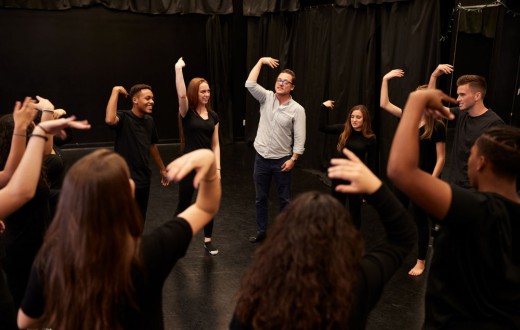As artists in a demanding, competitive field, successful actors are constantly pushing themselves. There’s always the next class, the next audition, the next performance to prepare for. But one place where many actors fail to keep on top of the development of their craft is in learning new monologues.
It’s easy to look at learning a new monologue as a chore, and thus it immediately drops down the list of priorities. And it’s also easy to get complacent and rely on time-tested monologues we’ve had rattling around in our heads since college.
But if you look at it another way, learning new monologues can be not only rewarding from a professional standpoint, but also fun, believe it or not! Here’s a few reasons to get excited about learning a new monologue.
1. You’re in charge
In choosing a monologue you get a chance to do what you want to do. Unless you write and direct your own pieces, creating a monologue may well be the one chance you have to really take charge of what you work on as an actor. We’re so busy constantly trying to shoehorn ourselves into various roles for whatever we’re auditioning for that it’s easy to forget how much fun it is to pick a role you really WANT to play. Not only do you have the freedom to choose what piece you’re going to perform, you get to direct your favorite actor–yourself! Learning a new monologue is so much more than memorizing words. It’s a great opportunity to really dig deep and flex your muscles as an actor. You get to develop an arc in a one- to two-minute piece, and explore various tactics to achieve your character’s objectives–and best of all the door is wide open to your interpretation.
2. You get to swing for the fences
Every so often we get lucky and get cast in a dream role that really suits our particular skill set as actors, our personality and our style. But that’s rare–except when it comes to monologues. This your chance to pick material that is perfect for you. Conversely, it can also be a chance for you to pick material that runs counter to the way most casting directors and producers see you. If you’re a big, burly guy who is always cast in tough guy roles, here’s an opportunity to show off your sensitive side. If you’re a young ingénue who gets cast in soft, seductive roles, here’s your chance to rage out! This is yet another reason why we should constantly be learning new pieces and working the ones we already have down: you can develop a wide range of pieces of various styles and types of characters so you’ll always have something appropriate for any audition.
3. You get to read
They say writers are readers first, but the same could be said of actors. After all, you don’t learn lines without reading, and you don’t develop your skills as an actor without studying the best plays, television shows and films. And the truth for most of us in this hectic world is that we don’t read enough. Monologues to the rescue! In the process of developing some new monologues you have a great opportunity to read new and classic playwrights and screenwriters with whom you may not have been familiar before–and which you may never have discovered were it not for stumbling across one of their pieces in a monologue book. There’s so much great work out there that we simply owe it to ourselves to explore and broaden our theatrical horizons.
4. It’s all about you!
This is important for two reasons. First, as actors of course we love having the attention on us! And if you’re performing a monologue you get a chance to embrace and enjoy that attention. But on a more serious note, something you notice about the top actors in any field, be it stage, film or television is that they have charisma. This is a slippery word, but generally we can define it as a personal magnetism that attracts people to us. Charismatic people are the ones who fill up a room with their presence and create gravity around themselves that draws others in. When they leave the room, there’s a vacuum left behind. But while charisma is something rather nebulous that to some degree we are born with or not, it’s also something that can be developed. In learning and performing monologues we get to develop that ability to take a room and fill it up with our presence, as well as our ability to command attention–which are vital skills for anyone who wants to command attention in a role.
5. They’re not that long
Let’s face it, memorizing one to two minutes of lines just isn’t that much work. Of course, successfully working a monologue, as mentioned before is more than just saying the words correctly. But the truth is this is a rather easy part of what we do. There’s no reason to dread such a task, given all the positive benefits of learning new monologues. Another important point about the brevity of monologues is that we have to remember that casting directors often make a decision on an actor within the first ten or 20 seconds they read. Learning a well-honed, tight, brief monologue means you will grab their attention and make a solid impression right away.
6. Get in tune
Working monologues is acting, and as artists we should all be creating art every day. You may not always have a class or an upcoming audition for which you have to learn sides. But you can always, always have a monologue in progress. Learning new monologues gives you a chance to tune up your instrument and keep your instincts on building a character fresh and engaged. It not only helps to work on developing characters–something you’re going to be called on to do next time you audition or get cast in something–it also keeps your mind in tip-top shape when it comes to memorizing. The parts of our minds that we use to memorize can be developed and made stronger–and they can also deteriorate with lack of use. There’s no reason not to have a minimum of five monologues locked in and ready to go at all times. And there’s no reason not to head down to the library today and check out a book of monologues!







